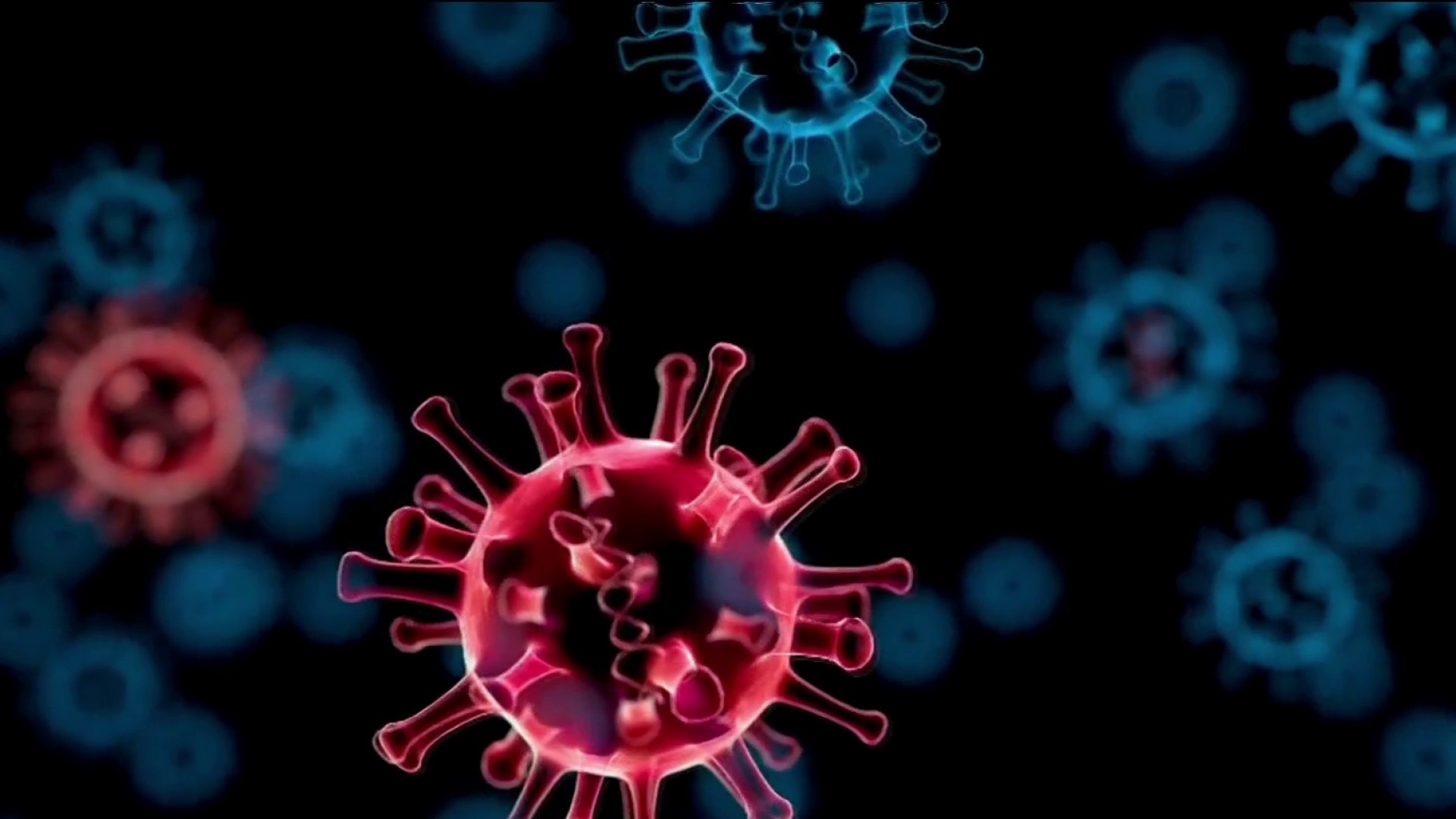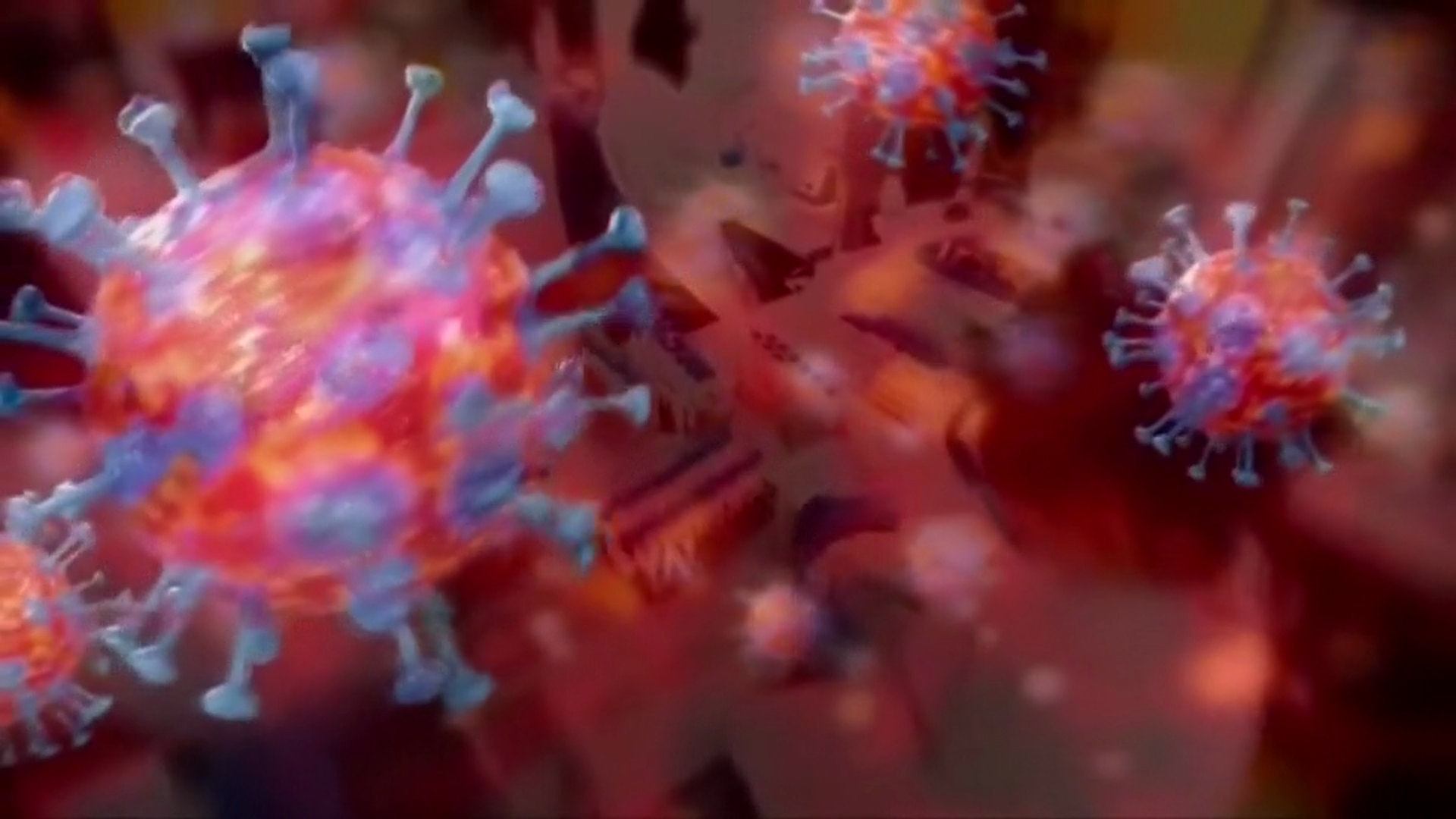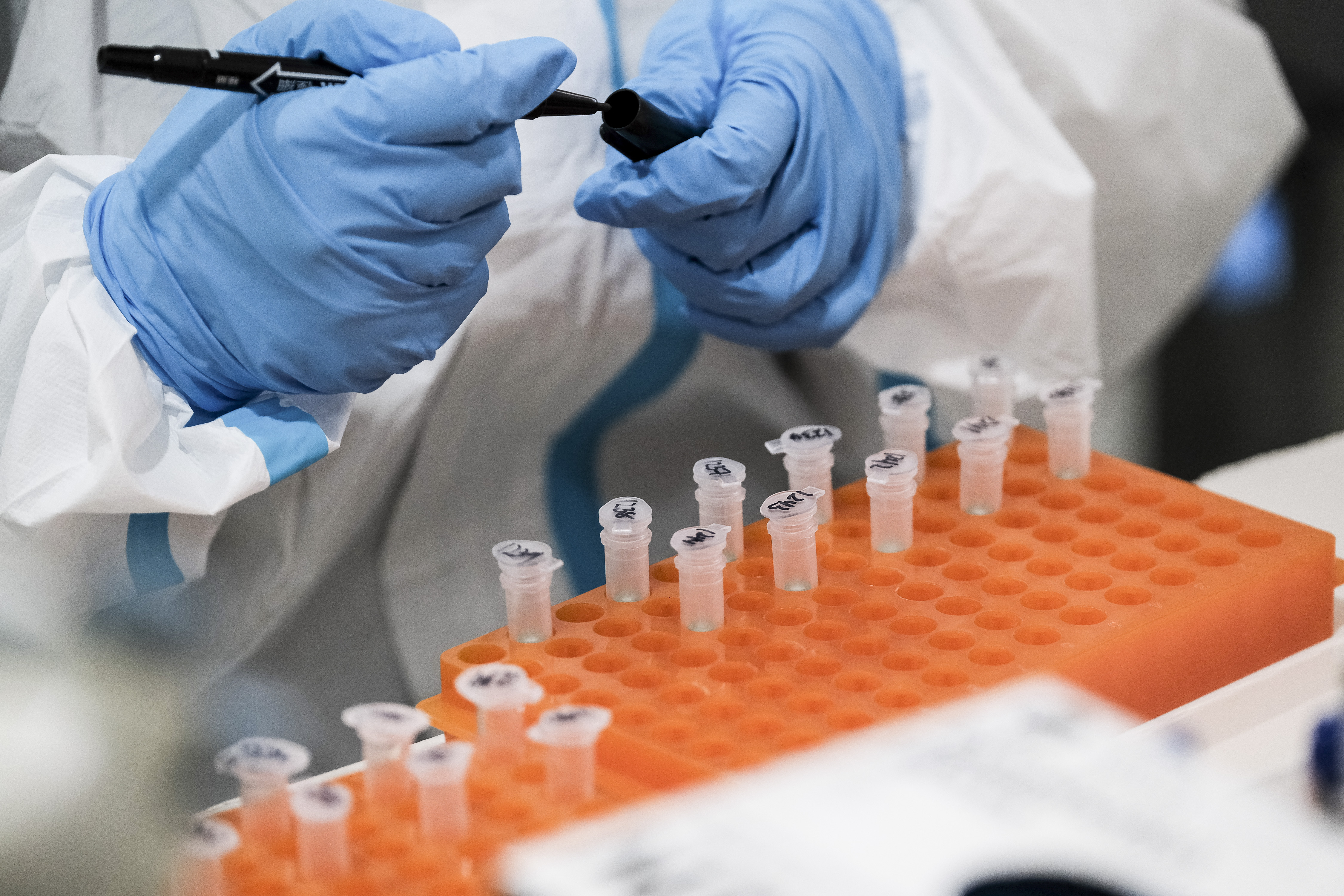With continued spread of the highly contagious BA.4 and BA.5 omicron subvariants, Cook County health officials are "strongly recommending" residents take added precautions.
The county's health department said most infections in the Midwest are being caused by the BA.4 and BA.5 variants, which are "more contagious than previous strains" and "can lead to more people being infected and gradual increases in hospitalizations."
“Not all variants are created equal,” Dr. LaMar Hasbrouck, Cook County Department of Public Health's chief operating officer, said in a statement. “Some variants are really contagious and cause more severe disease, while others are more difficult to spread and result in milder disease.”
Chicago Department of Public Health Commissioner Dr. Allison Arwady echoed that statement earlier this week.
Feeling out of the loop? We'll catch you up on the Chicago news you need to know. Sign up for the weekly Chicago Catch-Up newsletter here.
"Variants continue to worry people and they should worry people," Arwady said during a Facebook Live Tuesday. "Every time we have a new variant that emerges, it's the part that is the least control with COVID. If the COVID virus didn't mutate at all from here on out, I would have no questions about what we do to sort of get us out of COVID. The problem is, because it keeps mutating, because we keep seeing new variants - every time that happens in some way the virus is changing to be more contagious, which is most of what we've seen, but there's the potential for it to become, you know, more serious, there's the potential for it to become less serious, but you just don't know for sure. And that uncertainty is part of what makes it very hard to fully be able to predict the future."
Officials noted that "those who have been fully vaccinated and boosted are less likely to get seriously ill, hospitalized, or die from a COVID-19 infection with any variant or subvariant that has circulated to date," however.
The BA.4 and BA.5 subvariants also account for the majority of new COVID cases in the U.S., according to health officials.
David Montefiori, a professor at the Human Vaccine Institute at Duke University Medical Center, told NBC News that BA.4 and BA.5 are about three times less sensitive to neutralizing antibodies from existing COVID vaccines than the original version of the omicron variant, BA.1. Additional research suggests that BA.4 and BA.5 are four times more resistant to antibodies from vaccines than BA.2.
When it comes to symptoms, runny nose, sore throat, headache, fatigue and persistent cough appear to be most common of the fastest-spreading variants, according to Dr. Jonathan Martin, an infectious disease physician with Cook County Health.
This week, Cook County returned to "high" COVID community level risk, the highest of three levels classified by the CDC's community level status map. According to the most recent data, only four Chicago-area counties - DeKalb, Kane, Kendall and Kankakee - are at "medium."
"The issue now is the tests are not reported to the health department, so the numbers the health department is getting right now don’t necessarily reflect the number of COVID cases out there," Martin said.
If you're vaccinated and are taking precautions, like wearing a face covering and regularly washing your hands, contracting COVID is still possible.
"...If you are recently infected with omicron or if you have the vaccine, these variants are particularly good at causing a breakthrough infection or another infection," the doctor explained. "However, the vaccines are still holding up..."
Along with BA.4 and BA.5, another new variant is leading to even more concerns.
BA.2.75, as the variant is named, may be able to spread rapidly and get around immunity from vaccines and previous infection, according to doctors. It’s unclear whether it could cause more serious disease than other omicron variants, including BA.5.
"It came out of India...now starting to pop up all across the world," said Dr. Davey Smith, head of infectious diseases and global public health at the University of California San Diego. "The variant has some concerning properties - has about eight or nine mutations in spike protein."
The best way to protect yourself and your family, according to health officials, is to get vaccinated and boosted.
"I don't love BA.4, BA.5 and that it is the most contagious yet. I don't love the BA.2.75 that we're just keeping an eye on. But most importantly we're not seeing any change at this point in terms of protection against severe illness or major change and severity," she said. "And while that remains true, it's about getting up-to-date with your boosters, wearing your masks indoors, especially if you're in settings where you don't know a vaccine status, you know, testing, isolating, quarantining... there's not magic to this, but we do have the tools."
Here's what the Cook County Health Department recommends:
1. Get Vaccinated and Boosted – COVID-19 vaccination is recommended for everyone 6 months and older. COVID-19 boosters are recommended for everyone 5 years and older. To find out if you are eligible and up to date, visit the CDC website.
2. Ventilate – Socialize outdoors if possible and avoid poorly-ventilated indoor settings and large gatherings, especially if you are at increased risk of severe complications from COVID-19. Ventilate indoor spaces by opening windows and using HEPA filter air purifiers. If you are meeting friends or family in-person, choose an outdoor location when possible and space out.
3. Mask Up – CCDPH strongly recommends masking with a well-fitting high-quality mask, such as a KN95 or N95 respirator, when in public indoor spaces or other places, including outdoors where individuals near them may be unvaccinated. This is especially important for those who are considered at high risk for severe illness.
4. Get Tested – Testing can tell you if you’re at risk of spreading COVID-19. Consider using a self-test before joining indoor gatherings with others who live outside your household. Test 3-4 days before the gathering and again the day of the event. Stock up on self-test kits at accessCovidTests.org.
5. Get Treated – There are medications that can treat people at high risk of severe illness, to help prevent hospitalization and death. Treatments work best when started early. Contact your doctor as soon as you develop symptoms and/or test positive for COVID-19, to see if you are eligible for treatment.




